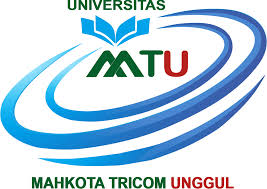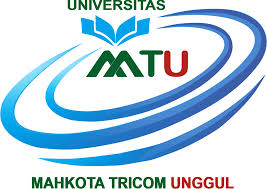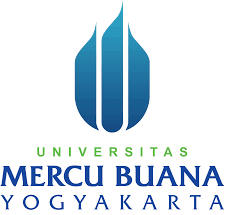Understanding Khawarij Ideology as an Effort for Early Detection of Terrorism Actions
DOI:
https://doi.org/10.55927/esa.v4i1.13643Keywords:
Khawarij, Takfiri, Terrorism, Early DetectionAbstract
Terrorism is globally recognized as a serious threat to the security and stability of a country. In the context of Indonesia, terrorism is defined as an actual threat, namely a threat that is currently developing and will continue in the next few years. Based on the history of the development of terrorism in Indonesia, extreme Muslim groups are often found as perpetrators of terrorism in Indonesia. Some of them are affiliated with international terrorism networks such as Al-Qaeda and the Islamic State of Iraq and Syria (ISIS). This group believes that it is permissible to kill anyone who disagrees with their views. This group is known as Khawarij. The special characteristic of the Khawarij group is that they adhere to the Takfiri ideology, namely declaring those who do not follow the beliefs or practices of the religion they adhere to as infidels. In its development, the Khawarij ideology became the ideological root of extremist movements among Muslims. The relationship between the Khawarij ideology and current acts of terrorism lies in the excessive understanding of Islam, as well as the justification of violence against other groups under the pretext of religion. Khawarij ideology also believes that a leadership (government) that does not implement Islamic laws is an infidel government that must be fought. These radical doctrines have led to the emergence of new extremist movements such as Al-Qaeda and ISIS. Therefore, one strategy in preventing acts of terrorism is to conduct Early Detection of the understanding of Khawarij ideology as part of the Early Warning System.
Downloads
References
Arif, M. (2021). Tragedi Pembunuhan Khalifah Utsman. Al-Hikmah, 23(1), 71–87.
Berisatu, R. (2016, December 21). Deteksi Dini dan Respons Cepat untuk Lumpuhkan Terorisme.
CNNIndonesia, R. (2024, February 20). BNPT Sebut Tak Ada Aksi Terorisme di 2023, Tapi Sel Teroris Meningkat.
Dahniel, M. R. A. (2023). Memahami Ancaman Radikalisme Dan Terorisme.
Gunawan. (2023). Implikasi Perang Jamal Dan Shiffin Dalam Islam Serta Pengaruhnya Terhadap Sejarah Politik Islam [Skripsi]. UIN Sumatera Utara Medan.
Hanafi, M. M. (2014). Tafsir terhadap Dasar-dasar Ideologi Takfīr Kelompok Islam Radikal. SUHUF, 7(2), 153–176.
Handayani, R. (2021, August 25). Kisah Pentolan Khawarij yang Memprotes Rasulullah.
Hervrizal, H. (2020). Khawarij: Sejarah Kemunculan, Ajaran-ajaran dan Sektenya. Dakwatul Islam, 5(1), 1–12.
Karim, A. (2015). Tregedi Pembunuhan Khalifah Usman Bin Affan: Melacak Sejarah Munculnya Aliran Teologi Dalam Islam. Fikrah, 3(1), 79–100.
Kemhan. (2015). Buku Putih 2015.
Maimun, A. (2023). Pembunuhan Khalifah Utsman Bin Affan Sebagai Anarkisme Politik:(Kajian atas Fenomena Post-truth dalam Kekerasan Politik di Awal Sejarah Islam). Tafhim Al-’Ilmi, 15(01), 69–86.
Pratikno, A. S. (2019). Khawarij Milenial: Transformasi Khawarij Dari Masa Lampau Menuju Masa Sekarang. Auladuna: Jurnal Prodi Pendidikan Guru Madrasah Ibtidaiyah, 1(1), 30–43.
Reza, A. (2022, March 5). Sisi Kronologis Kematian Sayidina Ali yang Jarang Diketahui. https://alif.id/read/arz/sisi-kronologis-kematian-sayidina-ali-yang-jarang-diketahui-b242268p/
Sukring, S. (2016). Ideologi, Keyakinan, Doktrin dan Bid’ah Khawarij: Kajian Teologi Khawarij Zaman Modern. Jurnal Theologia, 27(2), 411–430.
Susilo, I. (2021, December 2). Upaya Membasmi Ideologi Takfiri Untuk Cegah Radikalisme dan Terorisme di Indonesia. https://www.tvonenews.com/berita/opini/16660-upaya-membasmi-ideologi-takfiri-untuk-cegah-radikalisme-dan-terorisme-di-indonesia
Syandri. (2017). Al Khawarij Dan Al Murjiah Sejarah Dan Pokok Ajarannya. Nukhbatul ‘Ulum, 3(1), 50–60.
Yakub, E. M. (2021, April 17). Ideologi “Takfiri/Jihadi” dan terorisme di Indonesia. https://www.antaranews.com/berita/2106238/ideologi-takfiri-jihadi-dan-terorisme-di-indonesia
Downloads
Published
How to Cite
Issue
Section
License
Copyright (c) 2025 Abdul Ghofur, Priyanto, Agus H.S. Reksoprodjo

This work is licensed under a Creative Commons Attribution 4.0 International License.



























